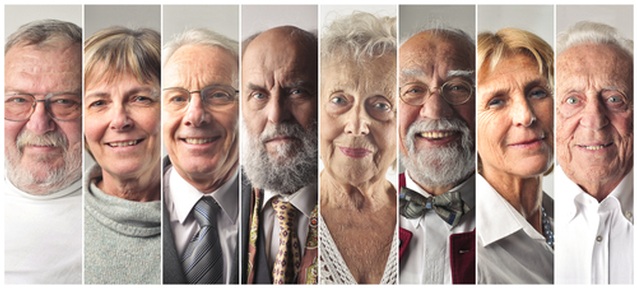Pandemic shines a light on danger of ageism
The Covid-19 pandemic which has spread across the world has shone a light on the danger of making sweeping generalisations about people due to their age.

In recent weeks, we have seen very concerning reports about people in later life having Do Not Resuscitate orders placed on their record with no consultation, people making divisive comments in the press about the economy suffering to protect older people, and people concerned about their recovery options if they were to catch the virus.
But even before coronavirus infected our country, the way that society talks about older people has often lurched from one extreme to another. People in this age group are either painted as vulnerable people who can’t do things for themselves, aren’t online and are isolated from friends and family. Or they’re assumed to be rich property owners who can enjoy their retirement with a final salary pension. Available national statistics play into this narrative too, with few of them breaking down the ‘older age’ bracket.
We wouldn’t treat a 25-year-old the same as a 45-year-old, so why do we think it’s OK to treat everyone over 65 the same? The reality is that this huge group of people is multifaceted, with different life experiences, abilities and views. Later life can be a wonderful time for many, and at Independent Age we regularly hear about people’s positive experiences, but the evidence also shows that many people aged 65 and over face significant challenges.
In our new report In Focus, which was put together before the outbreak, we explore the reality of life for people in later life whose voices can be less often heard in debates about ageing, and find out what is important for people in this age group. During the coronavirus pandemic it is more important than ever that these voices are heard, and people from all walks of life are supported to deal with the impact of the outbreak in the best way possible.
Our research project focused on the experiences of specific groups of people in later life across England including:
• people with mental or physical health conditions
• people providing informal care
• black, Asian and minority ethnic (BAME) groups
• people on low incomes
• and people without children (or whose children had died)
Despite everyone we spoke to having fascinating stories and experiences to share, with different life experiences, views and beliefs, there was a widespread feeling that they weren’t regarded as individuals. There was also a sense that they were hemmed in by society’s expectations of how older people should behave and what their limitations are.
Ron, 66, shared with us “Yes, there are stereotypes: old, sick, crocheting, holding on to their houses, keep the kids out, house stockers, bed blockers – or that’s the media at least.”
While George, 65, said: “People think you get to a certain age and should go home, a woman should be knitting cardigans and old men should watch telly. We’ve got an awful lot of life experience that could be tapped.”
Joan, 75, told us: “I thought I’d be wealthier as I got older, but it’s going the other way. I never thought I’d go downhill as I have health-wise. I walk bent over now, because of my back. I would have thought it’d happen later than it has.”
People often felt that the expectations society has of “older people”, and how services are set up, constrained them and made it hard for them to share their personality. Research participants told us the importance of being able to express themselves – often through hobbies or interests – and the positive impact that this had on their sense of wellbeing. However due to their age, people felt it was often assumed that there were only certain activities they should enjoy or ways in which they should behave. Understandably, being unable to express themselves, or maintain their interests, made many of them deeply unhappy.
People in older age are not all frail and struggling, or offline and disconnected, equally they are not all rich and enjoying their retirement. The way older people are often labelled or stereotyped is not only frustrating but limits their choices and can mean they don’t access the support they need and are entitled to. The damage these stereotypes can cause has never been more serious as our society navigates incredibly difficult decisions as a result of the global coronavirus pandemic.
No-one is the same as anyone else, regardless of their age. Everyone has unique hopes and fears, likes and dislikes. This universal truth does not change as people grow older. People will need different support and guidance at different times in their lives, and Independent Age wants that to be provided in a way that makes people feel they are being understood and seen as individuals, both now and after we have passed through the Covid-19 pandemic.
Latest News
 29-Jul-24
Dementia Bus gives carehome.co.uk staff insight into life with dementia
29-Jul-24
Dementia Bus gives carehome.co.uk staff insight into life with dementia
 01-Mar-24
Find out the top care homes in 2024
01-Mar-24
Find out the top care homes in 2024
 21-Mar-23
UK's top care homes in 2023 revealed
21-Mar-23
UK's top care homes in 2023 revealed
 03-Jan-23
carehome.co.uk launches free care helpline
03-Jan-23
carehome.co.uk launches free care helpline
 13-Dec-22
5 mins with Emily Whitehurst, chief operating officer for Constantia Healthcare
13-Dec-22
5 mins with Emily Whitehurst, chief operating officer for Constantia Healthcare